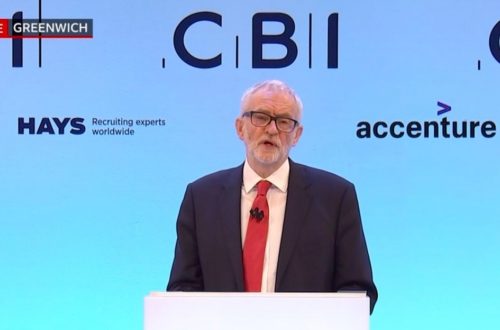The Daily Record reports concerns that staff in Jobcentres are under pressure to place unemployed people in unpaid work programmes rather than paid work in order to meet Government targets. Under the terms of the back-to-work programme, young unemployed people receive expenses on top of their £53.00 jobseekers’ allowance and have to work up 30 hours a week.
A civil service source said: “There is no target to get people in work but there is a target of 100,000 to put people into work experience.
“Employers have been told, “Don’t advertise jobs as vacancies. Let Jobcentre Plus supply you people on work experience.’ The morale among those who take part is very low.
“They don’t earn any extra money and weeks later, they are back signing on with no real improvement in their job prospects.
“They’re being taken advantage of by both the employers and the Government. You don’t need six weeks’ unpaid work experience to work on a checkout.”
There may be problems with the scheme, or the way it is being implemented, but this does not seem an entirely fair summary. Someone who can demonstrate that they can hold down a job, paid or not, even if it is unskilled, might have gained a slight advantage in the job market. And one Glasgow nightclub, according to the Daily Record, eventually offered jobs to 14 of the 17 people to whom it initially offered unpaid experience.
But it is still the case that big companies, such as Superdrug, seem to be getting workers on the cheap over the busy Christmas period. This statement from Tesco doesn’t, as reported by the Record, seem to make sense.
A Tesco spokesman said: “We are committed to delivering 3000 work experience placements and to giving the young people who undertake work experience with us a choice.
“We offer them the option to be paid by Tesco for the four weeks, or to remain on their benefit scheme, with the guarantee that a permanent role will be available if the placement goes well on either option.”
Who would choose to remain on benefits rather than receive a proper wage? Explanations welcomed.
This seems a bit weaselly from Argos:
Argos said they were hiring 12,000 people over Christmas and that a “few hundred” had done unpaid work experience. A spokeswoman insisted they worked alongside paid colleagues, rather than replacing them.
Obviously Argos isn’t going to replace its entire workforce, but it is difficult to be sure that the store wouldn’t have taken on fully paid temporary workers if the unpaid option hadn’t been on offer. ‘Worked alongside’ is meaningless.
Here’s a strongly worded attack on the scheme:
The same number of people will be doing the same amount of work – but thanks to workfare, Superdrug can replace paid workers with unpaid ones. Once again, the lies of the government and businesses, claiming that workfare is a way to help people back into work, are exposed. The exact opposite is true – workfare is a job destruction scheme.
We call on Superdrug to end this exploitation and withdraw immediately from all workfare programmes. Any workers now working unpaid should be hired straight away.
The best way to end the iniquity of workfare is to directly affect the profits of the companies exploiting it. We have shown that it works – join us doing the same to Superdrug! Until Superdrug gives in, help us in fighting this attack on all workers’ terms and conditions.
Maybe workfare does work for some people who are looking for a first step (back) into work – but I assume it is also working rather nicely for some corporations. Should taxpayers be funding their profit margins?


